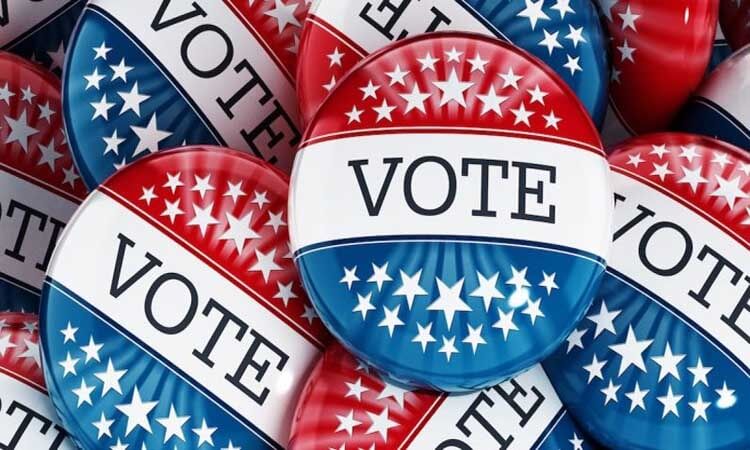How will the outcome of the U.S. election affect financial markets?
Investors in Canada and the U.S. look forward to post-election certainty, but concerns remain about interest rates and global pressures.
Advertisement
Investors in Canada and the U.S. look forward to post-election certainty, but concerns remain about interest rates and global pressures.

Whichever candidate wins the U.S. president election next Tuesday, experts say investors will be relieved to shed some uncertainty over what kinds of policies to expect.
But macroeconomic factors like interest rate cuts and geopolitical tensions will be far bigger influences on markets in the coming year than the outcome of the election, they say.
“What we really look at … is looking at which candidate can play a more critical role in shaping economic growth,” said Brianne Gardner, senior wealth manager of Velocity Investment Partners at Raymond James Ltd.

Get up to 4.00% interest on your savings without any fees.

Lock in your deposit and earn a guaranteed interest rate of 3.55%.

Earn 3.7% for 7 months on eligible deposits up to $500k. Offer ends June 30, 2025.
MoneySense is an award-winning magazine, helping Canadians navigate money matters since 1999. Our editorial team of trained journalists works closely with leading personal finance experts in Canada. To help you find the best financial products, we compare the offerings from over 12 major institutions, including banks, credit unions and card issuers. Learn more about our advertising and trusted partners.
Democratic candidate Kamala Harris’s promises are focused on domestic competitiveness, particularly among renewables, semiconductors and infrastructure, Gardner said.
She’s likely to maintain current trade policies and stability, added Gardner, and that could lead to steadier corporate profits. However, there’s been some talk of a potentially weaker U.S. dollar under Harris, which Gardner said could drive some short-term inflation.
On the other hand, Republican candidate Donald Trump is likely to cut taxes, especially corporate tax rates, which will boost profits, Gardner said. Sectors like oil and gas or banks are likely to do well under Trump thanks to tax cuts and deregulation, she said.
However, Trump has also said he would broadly raise tariffs, including a proposed 60% rate on goods from China and a tariff of up to 20% on all other imports.
“Tariffs are the greatest thing ever invented,” Trump said in September.
While there is usually some market volatility leading up to the election, the result doesn’t look to spell disaster for investors either way, said Michael Currie, senior investment adviser at TD Wealth.
“Depending what sector, what area you’re in, you’re going to have a favourite.”
While Trump may be pro-business and focused on cutting red tape and taxes—and markets had a good run during his last presidency—Harris presents less of a concern when it comes to geopolitical risks, said Mona Heidari, senior financial advisor at BlueShore Financial.
This “contributes to stronger investor sentiments and stronger investor confidence to invest in the stock market,” Heidari said.
On conference call to discuss Gildan Activewear Inc.’s latest results, chief executive Glenn Chamandy said Thursday that tariffs factor into costs and can create inflation, but it’s still unclear what their overall effect would be. He expressed optimism that Gildan won’t be disadvantaged.
“If tariffs come in, they come in for everybody, so we’ll be in the same position that we’re in today,” he told investors on the call.
Higher spending from the government—which both candidates are likely to do—can be inflationary, making price growth stickier, said Kevin Headland, chief investment strategist at Manulife Investment Management. So can tariffs and tax cuts, he added.
A TD Economics report from mid-October said the Democrats “have a historical edge when it comes to stock market performance,” but that this is likely a reflection of the state of the economy when they take office.
Currie noted that the health-care sector usually does worse in U.S. election years, and that’s no exception this time around. Both parties like to say leading up to an election that they will fight big drug companies and insurance companies, but their promises are usually overhyped, he said.
Since the U.S. is Canada’s biggest trading partner, any changes in the trading relationship between the two countries could be cause for concern, said Headland.
“If we are in a weaker economic environment in Canada, losing some of that demand for our goods could add additional weakness to the Canadian economy,” he said.
“If former president Trump gets in, there could be some uncertainty there.”
Experts said there’s always market volatility heading into an election, but not necessarily major moves in the end.
“It’s surprising how little effect elections actually have on the markets,” said Currie. But “it’s usually a big story.”
Markets tend to be a little more subdued but still positive in an election year, while they often go up by more than average in the year following an election, said Gardner.
“The markets don’t like uncertainty. They don’t like not knowing,” she said.
“Obviously certain sectors will benefit, but the markets continue to go higher at least 12 months after, and that is because they know who the president is. They know what to expect in the market, and there are favourable changes coming in from both parties.”
Share this article Share on Facebook Share on Twitter Share on Linkedin Share on Reddit Share on Email